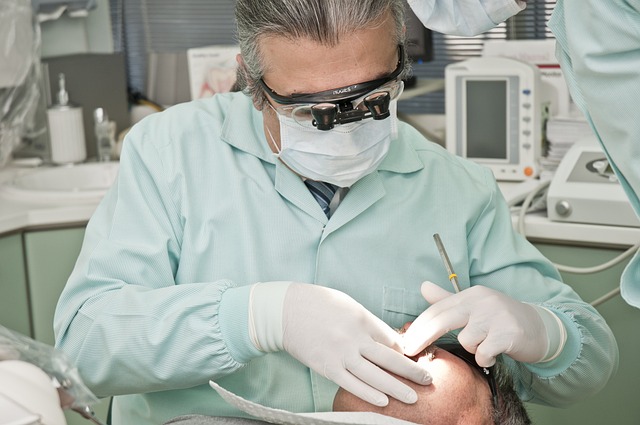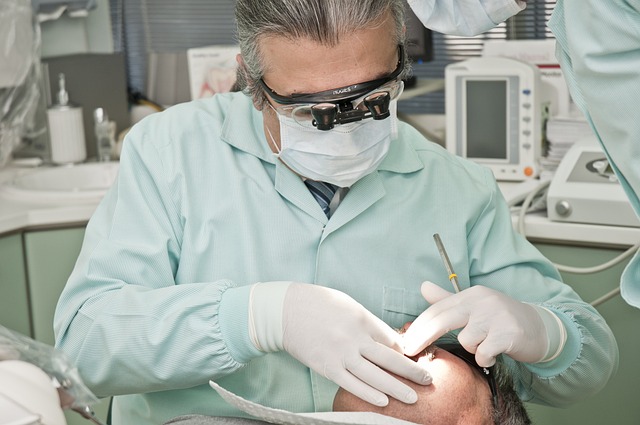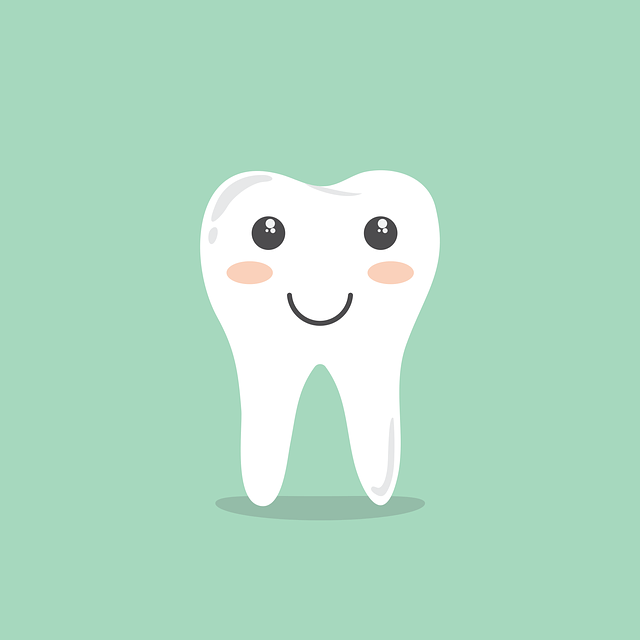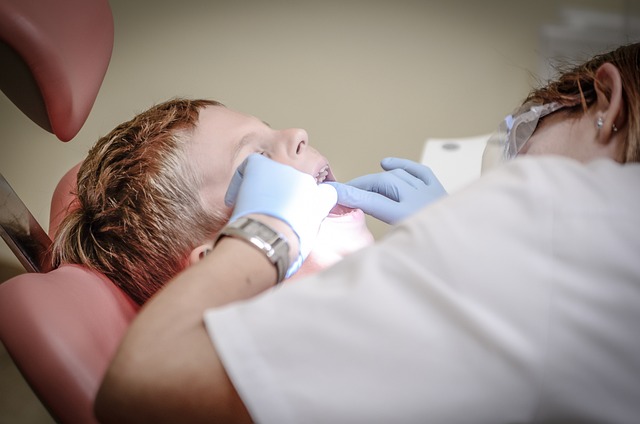Do Tooth Extractions Hurt? Unveiling the Truth in a Friendly Way!
Have you ever wondered about the pain associated with tooth extractions? If the mere thought of sitting in a dentist’s chair makes you squirm, fear not! We are here to shed light on the truth behind this dental procedure, and trust us, it’s not as nerve-wracking as it may seem. In this friendly article, we will debunk common myths and provide valuable insights to help ease your worries. So grab a cup of tea, sit back, and let us unravel the secrets of tooth extractions in the most approachable way possible!
1. The Dental Dilemma: Do Tooth Extractions Hurt? Let’s Find Out!
When it comes to tooth extractions, there’s often an understandable concern about pain. But fear not! We’re here to debunk the myths and shed light on what you can expect during this dental procedure. So, let’s dive right in and put your worries at ease.
1. Local anesthesia: First things first, your dentist will ensure your comfort by administering a local anesthetic to numb the area around the tooth that needs to be extracted. This injection may cause a brief pinch or sting, but trust us, it will soon fade away, and you’ll be ready for the procedure without feeling any pain.
2. Pressure sensation: During the extraction, you might feel some pressure as your dentist gently applies force to loosen the tooth from its socket. It’s crucial to remember that pressure is different from pain. Your dentist will handle the procedure with utmost care, minimizing any discomfort you may experience.
3. A sound and a tug: Another common concern is the sound you might hear during the extraction. This noise often results from the tooth being rocked back and forth before it’s completely removed. Additionally, you may feel a slight tugging sensation, which is only a sign that the tooth is being safely taken out.
4. Post-extraction soreness: After the procedure, it’s normal to experience some soreness or discomfort in the extraction area. Your dentist will provide post-operative care instructions, such as applying ice packs and taking over-the-counter pain relievers if necessary. Remember that every individual’s healing process is different, but most people find the discomfort resolves within a few days.
So, the next time you find yourself facing the dental dilemma of needing a tooth extraction, rest assured that it’s not a painful ordeal. With the use of local anesthesia and a skilled dentist, the procedure is comfortable and efficient. Always remember to communicate any concerns you may have with your dentist, as they are there to ensure your well-being throughout the process. Don’t let the fear of pain prevent you from maintaining excellent oral health!
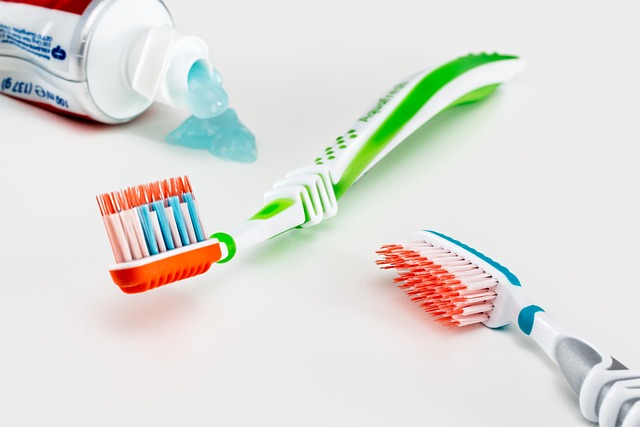
2. Debunking the Myths: The Truth Behind Tooth Extractions and Pain
Are you feeling anxious about an upcoming tooth extraction? Don’t worry! We’re here to dispel common myths surrounding tooth extractions and help you understand the truth behind any pain or discomfort you may experience during the procedure.
Myth #1: Tooth extractions are extremely painful. Contrary to popular belief, modern dentistry has advanced significantly, and through the use of local anesthesia and sedation, the pain during a tooth extraction is minimal. Dentists prioritize your comfort and take every precaution to ensure the procedure is as painless as possible.
Myth #2: You’ll experience excruciating pain during recovery. While it’s natural to expect some discomfort after a tooth extraction, the level of pain varies for each individual. Generally, over-the-counter pain medications recommended by your dentist can effectively manage any post-operative discomfort. It is important to follow your dentist’s instructions for aftercare to promote a smooth and comfortable recovery.
Don’t let misinformation discourage you from seeking a tooth extraction when necessary. Trust in your dentist’s expertise, and remember that they are committed to providing you with a comfortable experience while addressing your oral health needs.
3. Pain-Free Extractions: Discovering Modern Techniques for a Pleasant Experience
When it comes to tooth extractions, the mere thought can be anxiety-inducing. However, thanks to advancements in dentistry, modern techniques have made the extraction process a much more pleasant experience. Here, we explore pain-free extraction methods that will put your mind at ease:
- Laser-Assisted Extractions: Laser technology has revolutionized tooth extractions, making them virtually painless. This technique utilizes the energy from a laser to gently and precisely remove the targeted tooth, eliminating the need for traditional tools.
- Intravenous (IV) Sedation: For those with dental anxiety or fear, IV sedation can help create a calm and relaxed state. Administered by a qualified professional, this method ensures you remain comfortable throughout the extraction procedure.
- Minimal Invasive Techniques: By utilizing small incisions and specialized tools, modern extractions are now conducted with minimal disruption to the surrounding tissues. This leads to faster healing times and reduced post-extraction discomfort.
With these modern pain-free extraction techniques, there’s no need to dread removing a troublesome tooth any longer. Your dentist will work closely with you to determine the most suitable method based on your specific situation, ensuring a pleasant and comfortable dental experience. Remember, maintaining good oral health is essential, and extracting a tooth when necessary can contribute to your overall well-being.

4. From Anxiety to Relief: Understanding How Dentists Ensure Minimal Discomfort during Extractions
Anxiety is a common feeling when it comes to dental extractions, but rest assured, dentists take multiple measures to ensure minimal discomfort during the procedure. Here’s how they prioritize your comfort:
1. Local Anesthesia: Dentists administer local anesthesia to numb the area around the tooth being extracted. This ensures that you don’t feel any pain during the procedure.
2. Sedation: For those with extreme dental anxiety, dentists may offer sedation options such as nitrous oxide (laughing gas) or oral sedatives to help relax and calm you during the extraction.
3. Gentle Extraction Techniques: Dentists use specialized tools and techniques to remove the tooth gently, minimizing trauma and discomfort to surrounding tissues.
4. Clear Communication: Dentists understand the importance of clear communication and will explain each step of the extraction process, addressing any concerns or questions you may have. This helps to alleviate anxiety and build trust.
5. Post-Extraction Care: After the extraction, dentists will provide detailed instructions on proper post-extraction care. This includes information on pain management, what to eat and avoid, and how to maintain oral hygiene to ensure a smooth healing process.
With these strategies in place, dental professionals aim to make the extraction procedure as comfortable and stress-free as possible. Remember, open communication with your dentist regarding your fears and concerns is essential, as they are dedicated to ensuring your experience is anxiety-free.

5. A Gentle Approach: The Role of Local Anesthetics in Making Tooth Extractions a Breeze
In the world of dentistry, tooth extractions are a common procedure that can often cause anxiety and discomfort for patients. However, with the help of local anesthetics, these extractions can be made much more comfortable and painless. Local anesthetics play a crucial role in numbing the area around the tooth that needs to be extracted, providing patients with a gentle and pain-free experience.
Local anesthetics work by blocking the nerve signals in the area where they are injected, effectively numbing the surrounding tissues. This allows the dentist to perform the extraction without the patient feeling any pain. During the procedure, the dentist will carefully administer the anesthetic using a small needle, ensuring that the anesthetic reaches the targeted area. Once the anesthetic takes effect, the patient will be able to undergo the extraction without any discomfort. The use of local anesthetics not only ensures a pain-free experience but also reduces the overall stress and anxiety associated with tooth extractions.
- Local anesthetics are safe and commonly used in dental procedures.
- They can be administered as a gel or through injection.
- The effects of local anesthetics can last for several hours, providing long-lasting numbing effects.
The next time you need to undergo a tooth extraction, remember that local anesthetics are your best friend. They can make the process a breeze by numbing the area and eliminating any discomfort. So, sit back, relax, and let local anesthetics work their magic!

6. Teamwork Makes the Dream Work: How Dentists and Patients Can Collaborate for a Smooth Extraction Process
Clear Communication: Open and clear communication between dentists and patients is crucial for a successful extraction process. Dentists should explain the procedure in detail, ensuring patients understand the steps involved, potential risks, and the expected outcome. In turn, patients should feel comfortable asking questions and expressing any concerns they may have. This two-way exchange of information helps build trust and ensures everyone is on the same page, promoting a smooth and stress-free experience for both parties.
Collaborative Decision-Making: Collaboration between dentists and patients is key when it comes to making decisions regarding the extraction process. Dentists should consider the patient’s preferences, unique oral health needs, and any existing medical conditions before finalizing the treatment plan. By involving patients in the decision-making process, dentists not only empower them to take an active role in their oral health but also foster a sense of ownership and trust. Together, dentists and patients can work as a team to develop an extraction plan that meets everyone’s needs, ensuring a successful outcome.
7. The Road to Recovery: Post-Extraction Care Tips for a Speedy and Comfortable Healing
Once you’ve had a tooth extraction, proper post-operative care is key to ensuring a speedy and comfortable healing process. Follow these care tips to minimize discomfort and promote efficient recovery:
Pain Management
- Take prescribed pain medication as directed by your dentist.
- Apply an ice pack on the treated area for 10 minutes every hour to reduce swelling and numb the area.
- Avoid taking aspirin, as it can increase bleeding.
Oral Hygiene
- Gently rinse your mouth with warm saltwater every few hours, starting 24 hours after the extraction, to keep the extraction site clean.
- Brush your teeth gently, avoiding the extraction site for the first few days. Resume normal brushing after 48 hours.
- Avoid using mouthwash or spitting forcefully, as it might dislodge the blood clot.
Remember, it’s essential to follow these care tips for a successful recovery. Consult your dentist if you experience severe pain, excessive bleeding, or any other concerns during the healing process. Taking proper care now can lead to a quicker return to your regular routine and a healthy, pain-free mouth in no time!
8. Overcoming Fear: Empowering Patients with Knowledge to Alleviate Extraction Anxiety
Fear and anxiety related to tooth extraction is a common concern among patients. However, with the right knowledge and understanding, it is possible to alleviate these anxieties and empower patients to face the procedure with confidence. Here are a few key points to help you overcome fear and anxiety associated with tooth extractions:
- Understand the process: Familiarize yourself with the steps involved in a tooth extraction. Knowing what to expect during the procedure can help reduce anxiety. Your dentist will explain the process and address any concerns or questions you may have.
- Ask about sedation options: If you’re particularly anxious, inquire about sedation options that can help you relax during the procedure. Your dentist will explain the different types available and help determine which one is suitable for you.
- Communicate your fears: It’s essential to openly communicate your fears and concerns with your dentist. They are experienced in dealing with dental anxieties and can provide reassurance and support throughout the process.
- Obtain comprehensive information: Gain a thorough understanding of the benefits and risks associated with a tooth extraction. Your dentist will provide you with all the necessary information, allowing you to make an informed decision.
By equipping yourself with knowledge and open communication, you can actively participate in the tooth extraction process and feel more empowered and at ease. Remember, your dentist is your ally in overcoming fear, and they are committed to making your experience as comfortable as possible.
9. The Bright Side: Turning Tooth Extractions into an Opportunity for Improved Oral Health
Having a tooth extraction can seem like a daunting experience, but there is a bright side to this procedure. In fact, it can be an opportunity for improved oral health and a chance to start fresh with a healthier smile. Here are a few ways you can turn tooth extractions into a positive experience:
1. Promote healing: After a tooth extraction, it’s essential to take good care of the extraction site to ensure proper healing. Follow these tips to promote healing and prevent complications:
- Gently rinse your mouth with warm saltwater several times a day
- Avoid smoking or using straws, as it can dislodge the blood clot and delay healing
- Stick to soft foods, such as yogurt, mashed potatoes, and smoothies, for the first few days
- Take any prescribed medications as directed by your dentist
2. Explore tooth replacement options: Although losing a tooth can be disheartening, it can also be an opportunity to explore tooth replacement options for a healthier and more confident smile. Consider these options:
- Dental implants: A long-lasting solution that mimics the natural tooth root and provides stability for a replacement tooth.
- Dentures: Removable appliances that can replace multiple missing teeth or a full arch, improving both function and aesthetics.
- Dental bridges: Fixed restorations that bridge the gap created by missing teeth, restoring the appearance and functionality of your smile.
Remember, it’s important to consult with your dentist to determine the best tooth replacement option for your specific needs. By approaching tooth extractions with a positive mindset, you can seize the opportunity to improve your oral health and achieve a brighter smile!
10. Supportive Smiles: How Dentists and Staff Provide a Friendly Environment for Tooth Extraction Procedures
When it comes to tooth extraction procedures, dentists and their staff understand the importance of creating a welcoming and supportive environment for their patients. From the moment you step into the dental office, you’ll be greeted with warm smiles and friendly faces, helping to ease any anxiety or nerves you may have.
The supportive atmosphere continues during the procedure itself. Dentists and their staff are trained to provide reassurance and comfort throughout the process, making sure you’re kept informed and comfortable every step of the way. They understand that tooth extraction can be a daunting experience for many people, so they go above and beyond to put you at ease. Whether it’s distraction techniques, gentle words of encouragement, or a friendly hand to hold, the dental team will do whatever it takes to make you feel comfortable and supported.
Frequently Asked Questions
Q: I have a tooth extraction scheduled but I’m quite scared. Can you tell me, do tooth extractions hurt?
A: We completely understand your concern, but you’ll be relieved to know that tooth extractions are usually painless. Dentists take great care to ensure your comfort throughout the procedure.
Q: How is the pain managed during a tooth extraction?
A: Dentists employ a range of techniques to ensure that you experience minimal discomfort during a tooth extraction. Local anesthesia is administered to numb the area around the tooth, ensuring you won’t feel any pain during the procedure.
Q: What happens if I’m extremely anxious or have a low pain tolerance?
A: Dentists understand that some patients may have higher anxiety levels or lower pain tolerance. In such cases, your dentist may offer additional options to help you relax and minimize any discomfort, such as conscious sedation or nitrous oxide (also known as laughing gas).
Q: Are there any side effects or risks associated with tooth extractions?
A: While tooth extractions are generally safe, like any dental procedure, they may involve potential risks. These can include swelling, bleeding, infection, or damage to neighboring teeth. However, dentists take necessary precautions to minimize these risks and provide post-extraction care instructions to aid in a smooth recovery.
Q: How long does the discomfort last after a tooth extraction?
A: Some soreness or discomfort may persist for a few days after the extraction, but it can generally be managed with over-the-counter pain relievers. The healing process varies from person to person, but most people find significant relief within a week or two.
Q: Will I need any special care after a tooth extraction?
A: Yes, your dentist will provide you with post-extraction care instructions. These may include guidelines for pain management, proper oral hygiene, dietary restrictions, and how to prevent infections. Following these instructions is crucial for a faster and smoother recovery.
Q: Are there any alternatives to extraction for damaged or decayed teeth?
A: While extracting a tooth is sometimes necessary, dentists always explore alternatives whenever appropriate. Procedures like fillings, crowns, or root canals are often considered to preserve a damaged or decayed tooth. Your dentist will determine the best option based on your specific situation.
Q: Is there anything I can do to minimize my anxiety before a tooth extraction?
A: Absolutely! Inform your dentist about your anxiety, and they will discuss possible relaxation techniques or even prescribe medication to help you feel calmer before the procedure. Additionally, bringing headphones or playing soothing music during the extraction can be a beneficial distraction.
Q: Can I eat or drink anything before a tooth extraction?
A: It’s generally recommended to avoid eating or drinking for several hours before the procedure, especially if you will be under anesthesia. However, your dentist will provide specific instructions tailored to your needs before your appointment.
Q: Is it normal to feel emotional or nervous before a tooth extraction?
A: It is completely normal to experience a range of emotions before any dental procedure. Dentists understand this and will do their best to create a comfortable and friendly environment, putting your concerns at ease. Don’t hesitate to communicate any fears or anxieties you may have with your dentist.
Conclusion
In conclusion, dear readers, we hope that this article has helped ease any concerns or fears you may have had about tooth extractions. While the thought of it may seem daunting, rest assured that modern dentistry has come a long way in ensuring a pain-free and comfortable experience for patients.
Remember, tooth extractions are typically performed under the influence of local anesthesia, which numbs the area and prevents you from feeling any pain during the procedure. Dentists are well-trained professionals who prioritize your comfort and well-being, so don’t hesitate to communicate any concerns or anxieties you may have prior to your extraction.
After the extraction, expect some discomfort and swelling, but these effects can easily be managed with over-the-counter pain medication and the guidelines your dentist provides. Remember to take it easy and follow your dentist’s post-extraction care instructions diligently to promote the healing process.
If you find yourself feeling nervous, just remember that you’re in good hands. Dentists are experts in their field, and their friendly and reassuring nature is sure to put you at ease. So, take a deep breath, trust the process, and soon enough, you’ll be on your way to a healthier, pain-free smile!
We sincerely hope that this article has successfully unveiled the truth behind tooth extractions, all while maintaining a friendly and informative tone. Remember, knowledge is power, and understanding what to expect can help alleviate any concerns you may have about this common dental procedure. As always, if you have any further questions or need more information, don’t hesitate to reach out to your dentist. Cheers to a healthy, pain-free smile!
